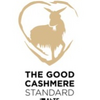
The Good Cashmere Standard
About (The Good Cashmere Standard)
The Good Cashmere Standard (GCS) is a certification program that focuses on promoting sustainable and ethical practices in the cashmere industry. It aims to ensure the welfare of cashmere goats, protect the environment, and support the livelihoods of herders and communities involved in cashmere production.
The GCS covers various aspects of cashmere production, including animal welfare, environmental conservation, and social responsibility. Here are some key features of the Good Cashmere Standard:
Animal Welfare: The GCS sets requirements for the treatment and care of cashmere goats. It addresses issues such as grazing management, housing conditions, access to clean water, and responsible breeding practices. The standard prohibits the practice of mulesing and promotes the humane treatment of animals.
Environmental Conservation: The GCS promotes environmentally sustainable practices in cashmere production. It encourages responsible land management, water conservation, and the reduction of chemical inputs. The standard also encourages the preservation of biodiversity and the protection of natural habitats.
Social Responsibility: The GCS emphasizes fair labor practices and social welfare in the cashmere industry. It promotes safe and healthy working conditions, fair wages, and the prohibition of child labor. The standard also encourages the empowerment of local communities and the development of sustainable livelihoods.
Traceability and Transparency: The GCS requires transparency and traceability throughout the cashmere supply chain. It encourages companies to provide accurate information about the origin of their cashmere, including the farms where the goats are raised. This allows consumers to make informed choices and supports the integrity of the certification.
The Good Cashmere Standard is implemented through an independent certification and auditing process. Certified farms and producers undergo regular inspections and assessments to ensure compliance with the standard's requirements.
By choosing products with the Good Cashmere Standard certification, consumers can support sustainable and responsible practices in the cashmere industry. The certification provides assurance that the cashmere has been produced with consideration for animal welfare, environmental protection, and social well-being.
The Good Cashmere Standard contributes to the long-term sustainability of the cashmere industry, promoting ethical practices and helping to preserve the natural resources and communities connected to cashmere production.